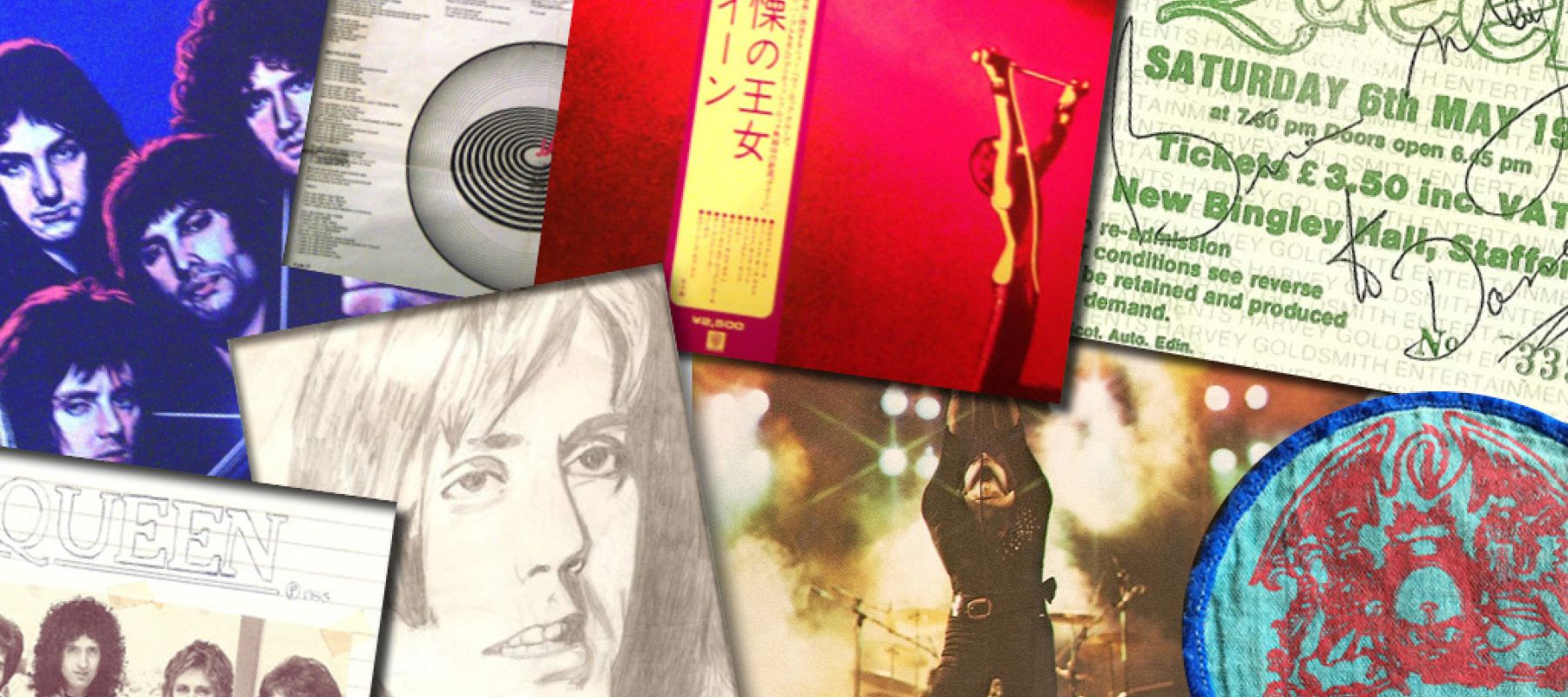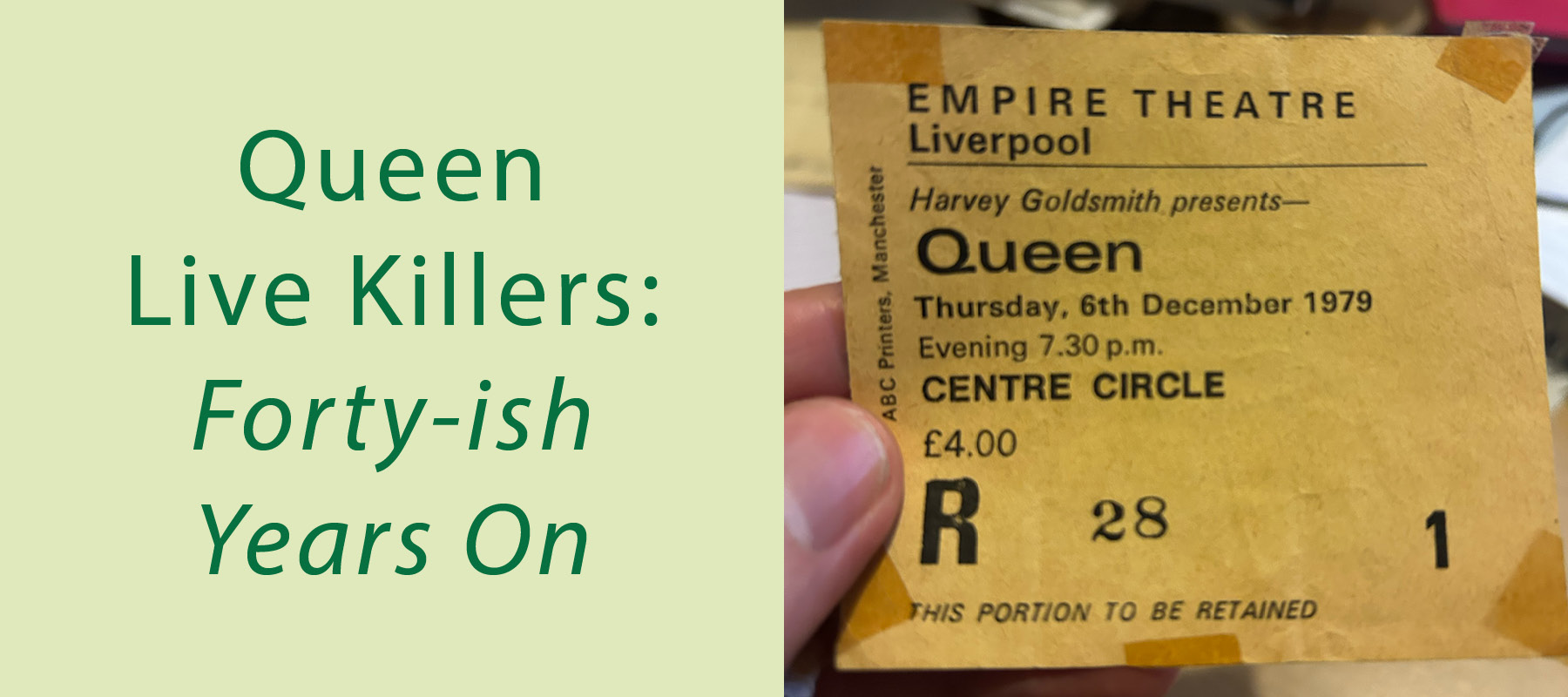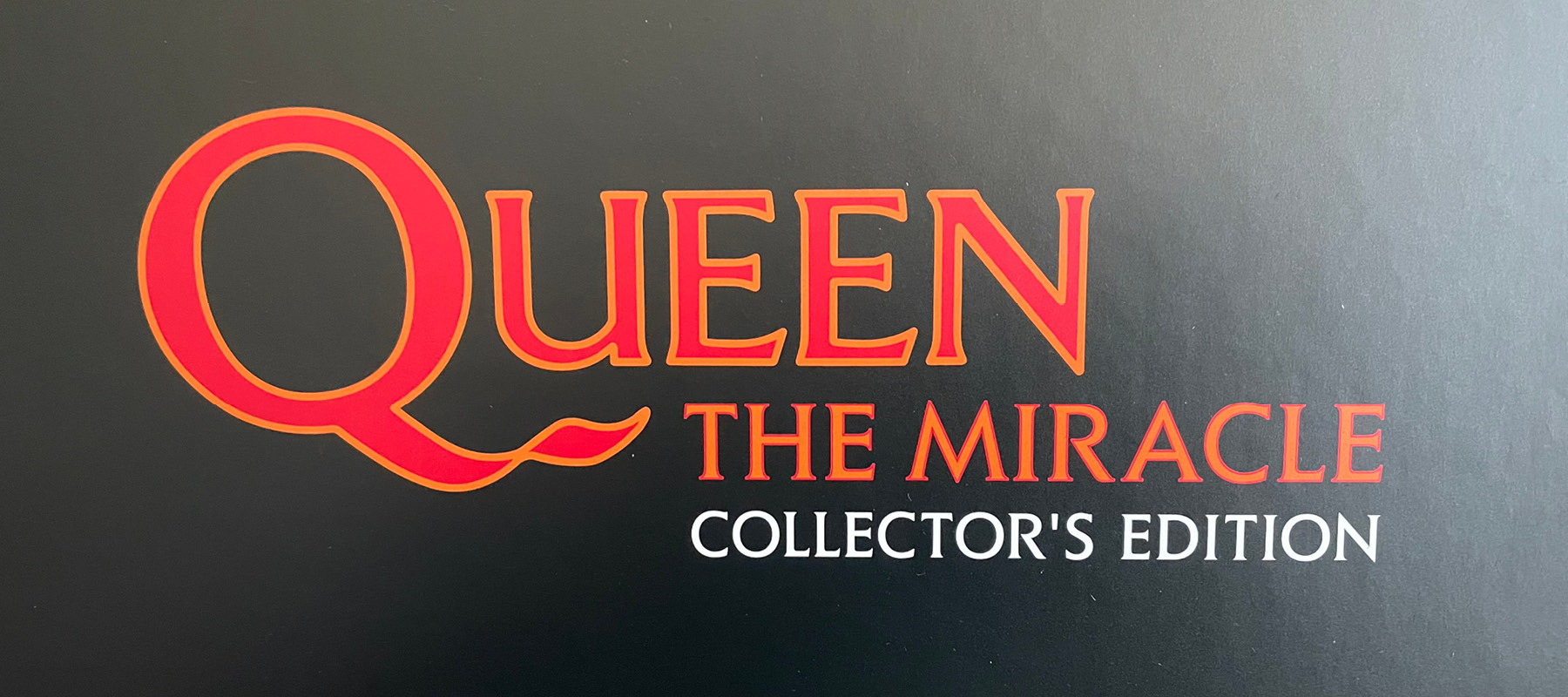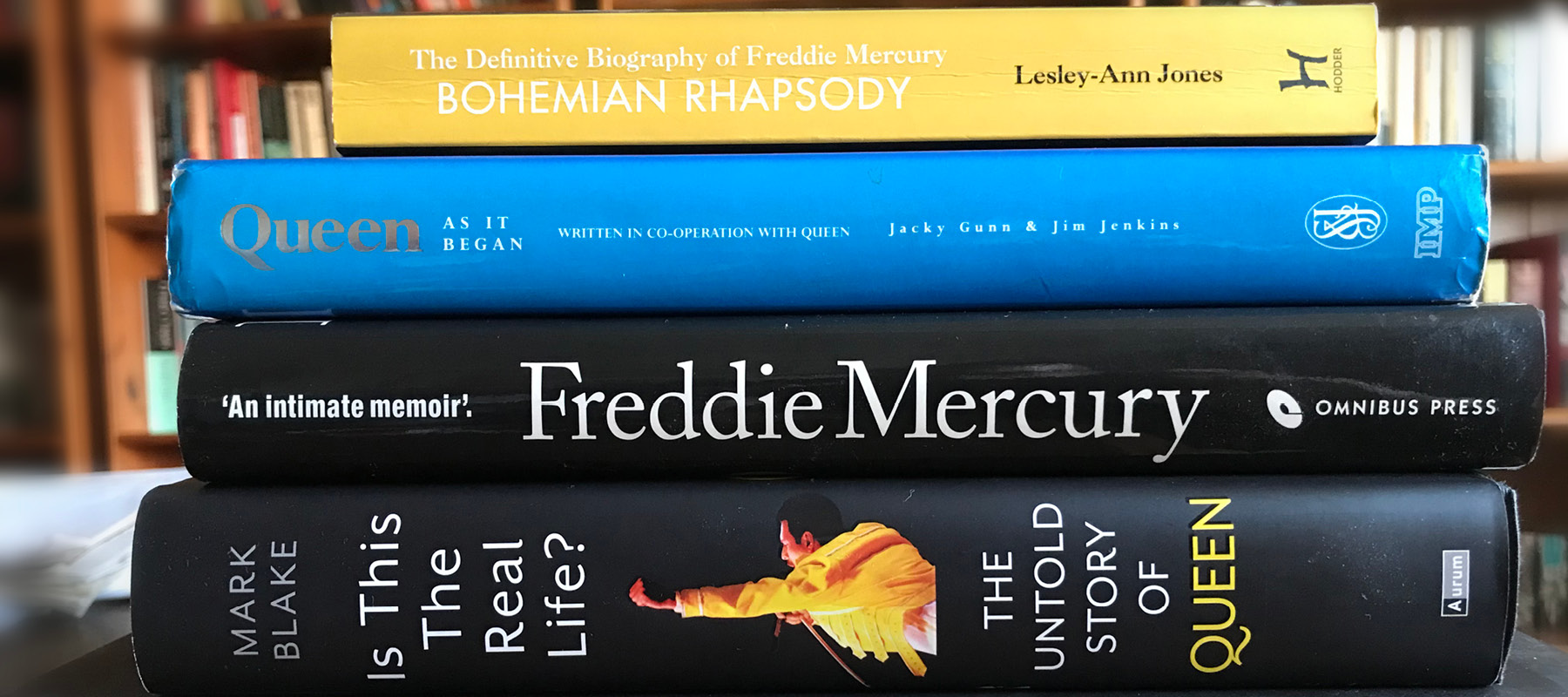Best Queen Singles
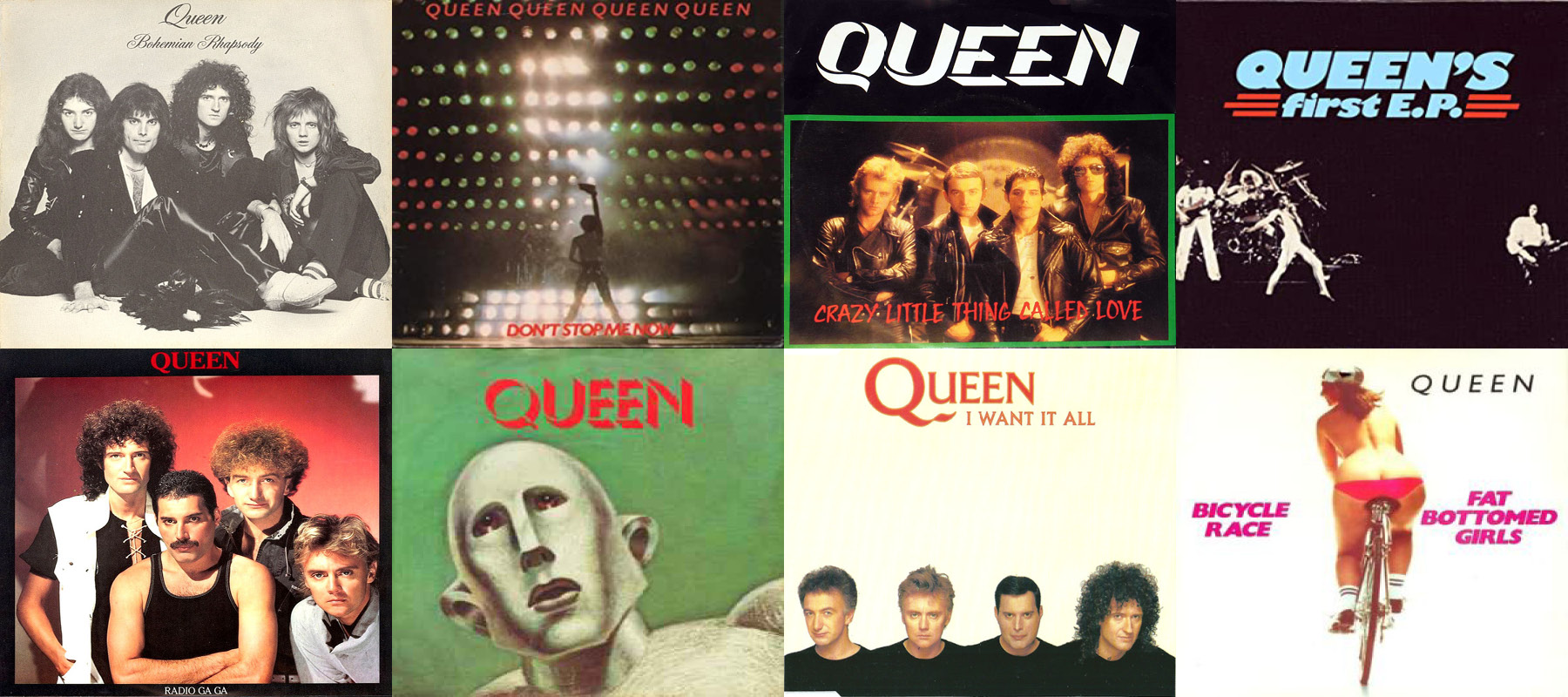
Another bank holiday, another ‘best Queen song’ poll – well, best Queen song since the last poll of best Queen songs. I am exaggerating, but not gratuitously so. This time it’s BBC Radio 2’s Your Ultimate Queen Song, part of Easter Monday’s Radio 2 Celebrates Queen day. Meanwhile, my Twitter feed just featured a retweet of a member of the public belting out We Are the Champions from ITV’s Starstruck (with, note, Adam Lambert as one of the judges). ITV had its own The Nation’s Favourite Queen Song programme in 2014. And hardly a month goes by, it seems, without a Queen day on Sky Arts or BBC Four.
Do people – in the UK at least – now think of Queen in the same way as they do the Beatles? It is certainly easy to be mesmerised by the headlines and hyperbole: biggest-selling UK album ever; long-running West End musical (back on in 2023); mega-grossing film; gazillions of YouTube watches and Spotify streams. The list goes on. Even tired phrases like ‘iconic’ and ‘national treasure’ might not be wholly inappropriate in Queen’s case, though I hate hearing the term ‘legendary’ used about celebrities, regardless of who they are.
Queen’s winning formula is a combination of well-recorded, accessible and timeless songs, genuine musical talent, a superstar singer who died in the prime of life, theatricality and showmanship, professionalism, nostalgia tinged with sadness and heartache, extraordinary intergenerational appeal, dependability, ruthless business sense and – in Brian May – a genuinely nice guy. It wasn’t just the band’s name that secured them the opening slot at the platinum jubilee celebrations last summer.
Will the public eventually get sick of Queen? It is, after all, hard to nip to the supermarket or sit through TV adverts without bumping into some Queen song or other. And always, always the same ones.
My favourite music channel on YouTube is Sea of Tranquility. Pete Pardo and his guests are serious (and seriously knowledgeable) music fans. A favourite catchphrase of Pete’s is I never need to hear that song again. He said those very words again in a programme I watched just yesterday – the song, Babe by Styx. There may even be a whole show devoted to played-to-death songs. (A huge shoutout to Pete, by the way, for drawing my attention to early Styx albums like The Grand Illusion and Pieces of Eight, essential listening for fans of 70s Queen.)
I don’t think I am quite at that stage yet with any Queen songs, but I may be close with one or two. The tracks released as singles are usually the ones I least concentrate on whenever I play a Queen album. I hardly ever play Greatest Hits. I can name all the tracks on Greatest Hits II but have no idea what order they come in. And, well, the less said about Greatest Hits III the better.
But how good are the singles, especially compared with the album-only tracks or even the stuff only released as B-sides and twelve-inch fillers? How good are the classics? How classic are the classics? And another question that kept on nagging away at me when I did my Queen Songs Ranked blogs back in 2018 was: what are the difficulties in coming to a judgement about how good they are?
There’s also a more basic question – what makes a good song? – but my argument here is that popular, successful, often-played singles are a particular headache when trying to compile any sort of ranking of favourite songs.
There’s Pete’s I never need to hear that song again problem of overfamiliarity, obviously. But, for me anyway, there is also the type of song that, for obvious reasons, is often selected for single release by rock bands. In common with those of other groups, Queen singles tended to follow a formula, especially as the band chased global stardom from the later 70s onwards – accessible and listener-friendly, catchy and filled with oft-repeated riffs and hooks, three or four minutes in length, and likely to have a crossover appeal. In a word, ‘commercial’. And I instinctively shy away from commercial pop songs.
I thought it would be interesting to compare my Queen rankings with some of these public polls. I went back to the BBC Radio 2 and ITV polls mentioned above and also a Classic Rock poll of the ’50 best Queen songs of all time’ that was first published in 2018 (their webpage has since been updated).
Note that we are not necessarily comparing like with like. I ranked every Queen song with any Freddie involvement – singles, albums, non-album B-sides and the handful of songs released long after Freddie’s death, such as Feelings, Feelings. The BBC invited listeners to vote for up to three of their favourite songs from Queen’s Top 75 UK chart singles, including collaborations with the band following Freddie’s death (hence the reason why Queen + The Muppets appear in the final chart – yes, really ). ITV’s website simply refers to a “representative panel of viewers”, presumably choosing from a list of singles. Classic Rock’s poll – like my rankings – covered the band’s entire output.
These polls are obviously ‘unscientific’, in the sense that the voting public is self-selecting. Take the Classic Rock poll, for example. Some of the voters will no doubt be big Queen fans. Equally, however, some participants may well be general rock fans who perhaps know little or nothing of Queen other than the singles. We just don’t know what the proportion is between these two groups. The BBC and ITV voters only had the singles to choose from, of course.
Anyway, here is the BBC poll’s top 10:
- Bohemian Rhapsody
- Don’t Stop Me Now
- Somebody to Love
- We Are the Champions / We Will Rock You
- Radio Ga Ga
- Who Wants to Live Forever
- Killer Queen
- Under Pressure
- Love of My Life
- These Are the Days of Our Lives
The results of the other two polls are not too dissimilar. I Want to Break Free is number 4 in the ITV poll (it was the BBC’s number 11), and ITV have Somebody to Love at number 10 and Who Wants to Live Forever one place lower. Classic Rock’s top three were the same as the BBC’s. Classic Rock’s top 12 were all singles (and remember that their voters could choose any Queen song, single or non-single). In total, seventeen songs out of Classic Rock’s top 20 were singles.
At least, that’s if we are counting Love of My Life, which didn’t feature in ITV’s shortlist. The original song was on 1975’s A Night at the Opera, but it was a live acoustic version (from the Live Killers album) that was released as a single, in 1979. Its top-10 placing here indicates that many now see it as a Queen classic, which raises an interesting question about the various and sometimes circuitous routes by which songs acquire ‘classic’ status. After all, though now a nailed-on classic, Don’t Stop Me Now only reached number 9 in the British charts when it was originally released. Who Wants to Live Forever didn’t even get in the UK Top 20.
Love of My Life bombed spectacularly when it came out as a single (it reached number 63) – and yet here it sits in the BBC top 10. It’s cut-through appeal and longevity probably come from the iconic 1986 Wembley show. Aagh, that word ‘iconic’ again – but arguably justified in this case, at least in its sense of a moment or image (or in the case of Wembley a whole series of images) that has seared itself into the public consciousness. Think of the band’s stage outfits, particularly Freddie’s yellow jacket, the poses he struck, the robe-and-crown finale – it’s all there in your head. Love of My Life is also now, of course, a pivotal audience-participation moment in the Queen + Adam Lambert live show with, on recent arena-filling tours, a special ‘appearance’ by Freddie.
We Will Rock You fits into this category too. The BBC paired it with We Are the Champions. ITV and Classic Rock both listed the two songs separately. We Will Rock You was not – as is widely misremembered – a double A-side (except in the USA and a couple of other countries), but is actually an example of a B-side that has become at least as well known as the A-side.
It’s a song I struggled to place in my rankings. It ended up at number 94 – mid-ranking, though I’m not sure I could tell you why. It is instantly recognisable, sung in sporting stadiums the world over to this day, nearly fifty years after its release. On the other hand, it has the simplest of song structures, is ridiculously repetitive and includes very little actual musicianship.
And can Bohemian Rhapsody be anything other than number 1? Well, yes. Freddie himself is on record as saying that Somebody to Love is a better piece of songwriting than Bohemian Rhapsody. When I did my rankings, I listened to every song again at least once, forcing myself to keep an open mind and not to rely either on judgements that I have settled on over the years or on what might be described as ‘received wisdom’ — in other words, what everyone else says.
The trouble is that the real ‘biggies’ are soooo familiar, ubiquitous even — and probably none more so than Bohemian Rhapsody. Add to that the fact that everyone — but everyone — will tell you how incredible it is. It’s hard to be objective. Bohemian Rhapsody is indeed an incredibly inventive, daring and original song, but so are a number of other Queen songs — The Prophet’s Song from the very same album immediately comes to mind, as does The March of the Black Queen from Queen II.
As I said earlier, I tend to steer well clear of mass-appeal ‘pop’ music, and this is reflected in my list of favourite Queen songs. Only three of my top 10 and eight of my top 20 were singles. All my favourite Queen albums are from the 70s. Their music was generally heavier, lighter, more daring, more inventive, more experimental, proggier, more diverse, more bewildering, more surprising and generally less formulaic than anything they released from 1980 onwards (with the exception, I suppose, of some of Hot Space).
Not that all Queen’s singles could be labelled commercial pop. Like Bohemian Rhapsody, Innuendo doesn’t fit the description. Both (unsurprisingly) feature high in my rankings. On the other hand, some Queen singles were extremely commercial and chart-friendly, but still rate highly in my chart because they are just so bloody good – Don’t Stop Me Now and Killer Queen, for example.
So, is it just hard for me to listen to the likes of I Want to Break Free, Another One Bites the Dust and Crazy Little Thing Called Love with fresh ears, or do I actually think that they are actually fairly mediocre (by Queen standards) songs?
I’m not absolutely sure, though I suspect it’s the latter more than the former. (All three of those songs were much better live, particularly Crazy Little Thing with its rocked-up final section, the bit after the “Ready, Freddie” response.) I do, however, know for certain that I am always far more excited whenever I hear tracks like (to take some random examples) My Fairy King, Some Day One Day and Long Away that I almost certainly won’t hear unless I make an effort to play the relevant album, which might not be for weeks at a time.
Is it snobbishness, perhaps – the mentality that you’re not a ‘real’ fan unless you like the deep album cuts? I hope that isn’t the case and that it’s more the fact that I look for a lot more in a song than just ‘catchiness’.
Anyway, here are my top 5 ‘best’ and ‘worst’ singles (up to and including 1991 when Freddie died), shown with their placing in my overall Queen chart, with the BBC placing in brackets.
My favourite Queen singles:
4. Bohemian Rhapsody (BBC number 1)
8. The Show Must Go On (BBC number 12)
9. Somebody to Love (BBC number 3)
11. Don’t Stop Me Now (BBC number 2)
12. Seven Seas of Rhye (BBC number 13)
And my least favourite Queen singles:
175. Body Language
171. Thank God It’s Christmas
159. Friends Will Be Friends (BBC number 37)
150. The Invisible Man
136. Scandal

